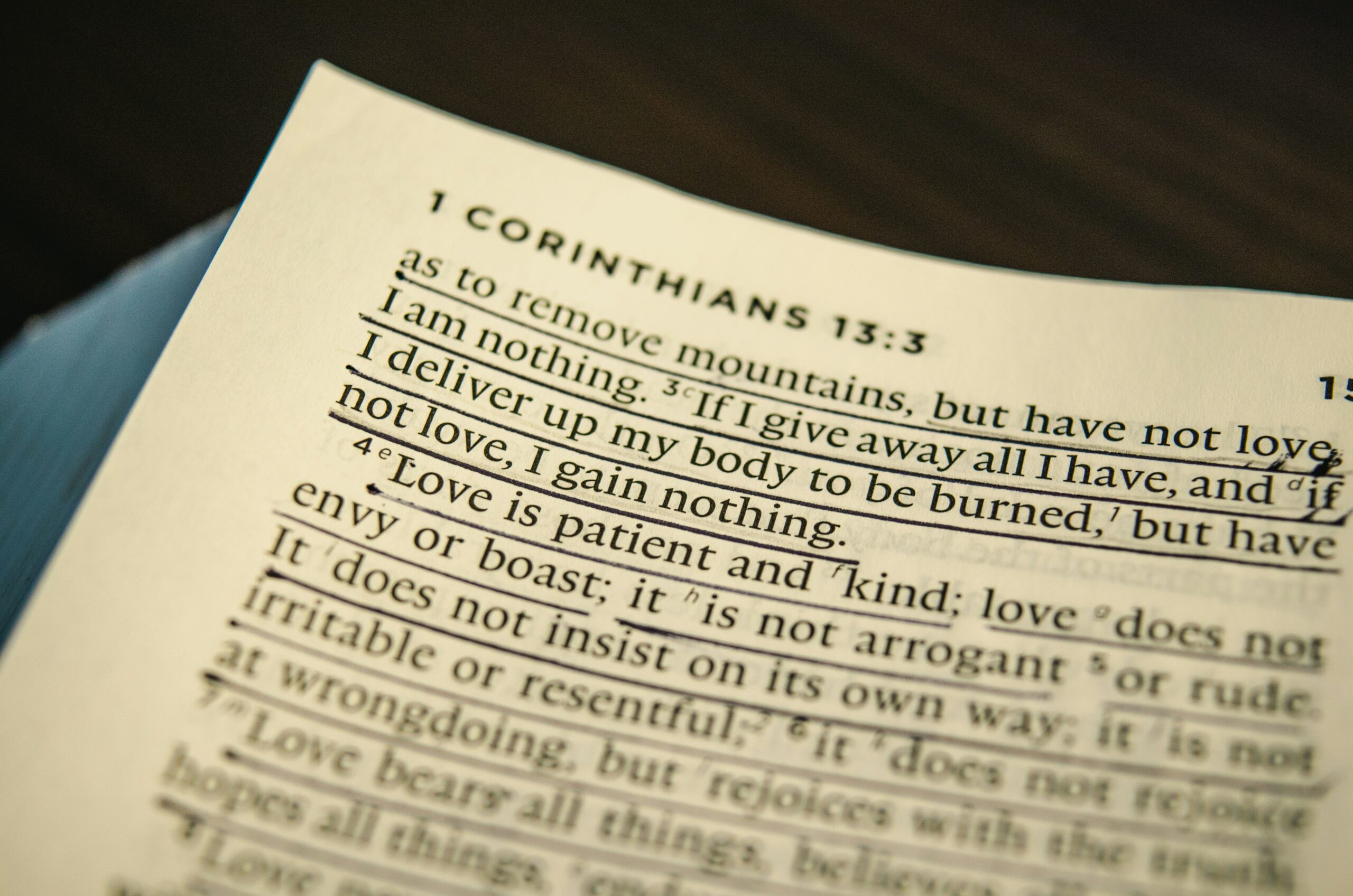
Encourage-[en-kur-ij] to inspire with courage, spirit, or confidence.
The enCourage Blog is weekly dose of encouragement in a world that is often filled with bad news. We offer life-giving entries each Monday and Thursday written by gifted women from across our denomination, the Presbyterian Church in America (PCA). You can subscribe below to have them delivered to your inbox. With hundreds of blog pieces, you can search on a variety of topics in the search bar above to read and share with friends. Christina Fox, a gifted author, serves as our enCourage General Editor. If you are interested in submitting a piece, you can contact her at cfox@pcanet.org.
Looking for the enCourage Podcast? Click here.
Sign up for our weekly enCourage blog:
Weakness in Ministry
JULIANNE ATKINSON |GUEST It’s easy to proclaim the gospel with our words. It’s not as easy to follow Christ’s path, embodying the gospel as we inevitably fail, embracing our sins, frailties, weaknesses, and limits. Can you remember a time you felt weak as a ministry leader? I once talked with a prospective volunteer about her background and quickly found that I disagreed on biblical grounds with her father’s profession. It wasn’t a controversial field that he worked in, but an illegal one. Knowing her father wasn’t a Christian, I assumed that she agreed with me. I was wrong. I tried to convince her using Scripture to no avail. Unsurprisingly, this was not what she wanted to hear. It didn’t change her heart about her father’s profession. She couldn’t believe a ministry leader would speak out against how her father provided for her family. Needless to say, she decided not to volunteer with the ministry. This encounter was humbling for me as a ministry leader. It revealed to me the complexities of working with people with different life experiences than mine and my need to have patience as God works in people's lives. Weakness Before Strength We want to look like we have a glazed clay pot among the rest of the basic ones....
When You Want to Trade in Your Specific Clay-Like Conditions
ELLEN DYKAS | CONTRIBUTOR But we have this treasure in jars of clay, to show that the surpassing power belongs to God and not to us. (2 Corinthians 4:7) I recently told a friend that I’m willing to participate in the sufferings of Christ; but can it be on my terms and in the form, timing, and intensity of my choosing?! I see the irony and hypocrisy of such a statement yet the truth is, it’s how I feel and think sometimes, even if unconsciously. Maybe like me, you delight in being a clay jar filled with the treasure of Jesus, yet struggle when the clay feels extra fragile, sad, or worn out. In those conditions, I can be tempted to want to click a ‘return’ button as simply as it is to send back an unwanted Amazon package. In the past few years, certain aspects of my clay-ness have felt extra hard. The impact of menopause on my body and ongoing disrupted sleep. Health related anxiety and the physiological, emotional, and spiritual impact of that. I transitioned into a (mostly) full time equipping and content development role which has been truly such a gift to have a dedicated season to pour out what I’ve learned in the years I’ve served with Harvest USA. Yet, it’s also been unexpectedly lonely, as I’ve been at my desk more than face to face with women as I was for my first sixteen years. What’s a girl to do?...
A Testimony in Sorrow
JENNA BOGARD | GUEST As my dear pastor neared the end of his life in 2022, I wept by his hospital bed. All I could utter was, “Jim, you are going to be with Christ soon!” His face lit up; that was all he wanted. His intimacy with Christ was apparent to everyone who knew him. Prior to his death, he repeatedly urged me to dive into the Song of Solomon as it ministered to him greatly in his last few months of suffering with ALS. At the time, I dismissed his claim that the book had anything to do with Christ and the church and even teased him for holding such beliefs. I wish he was still here so I could humbly admit my error and thank him for pointing me to some of the most beautiful truths of Christ that I’ve only begun to uncover. A Reflection of the Heart Dr. David Murray’s exposition of Song of Solomon chapter five was particularly impactful as it so perfectly described my spiritual condition at the time: utterly weak, fearful, depressed, and desperate.[i] As the chapter opens, the groom is at the door, calling the bride to open the door (v. 2). However, the bride is apathetic to his call. “I had put off my garment; how could I put it on? I had bathed my feet; how could I soil them?” (v.3) The bride didn’t want to put in the effort, a situation we usually find ourselves in when we have temporarily satisfied ourselves with the lust of our idols...
Celebrating Ten Years of EnCouragement
BARBARANNE KELLY | CONTRIBUTOR The passage of time is a funny thing. We mark anniversaries with amazement at how the years have flown by. The first time I attended the annual Leadership Training (LT) in 2017 seems like yesterday in some respects, and forever ago in others. That year, Karen Hodge and Christina Fox introduced us to a new resource for the women of the Presbyterian Church in America (PCA), the enCourage Blog, which had launched the year before. I attended the writers’ workshop, where Christina told us more about enCourage, and that she was looking for more women to write for it. In our brave new digital world, there are so many offerings for women to read, many which are genuinely faith-feeding and many more which are discouraging, fear-feeding, or enticements away from true faith. The purpose of enCourage is to be a bi-weekly dose of truly biblical life-giving encouragement in a world that is often filled with bad news. A month after my first LT, I submitted my very first post for enCourage and have since become a regular contributor. When Christina asked for a post this month celebrating enCourage’s ten-year anniversary, my first thought was, “Wait—ten years already?” Yes, ten years of encouragement written by women of the PCA for the women of the PCA have flown by! In the nine years I’ve written for enCourage I have learned and grown as a writer, particularly in my confidence in my calling to write, in honing my skills as a writer, and in the mutual encouragement among my fellow writers and our readers...
What Seminary Meant to Me as a Mom
ALLYSON BRUCE | GUEST This past May, as I walked into my graduation ceremony at Westminster Theological Seminary (WTS) we sang, “How Firm a Foundation.” This hymn beautifully captures my journey through the Masters of Arts in Counseling program. This foundation wasn’t laid in ease or in ideal conditions; it was built in the midst of motherhood. When I began seminary, I was a mom with soon to be four children under the age of five. I didn’t enter with spare time or energy, but with a desire to know God deeply, believing it would shape my mothering. A Foundation in the Word The first stanza of the hymn declares, “How firm a foundation, ye saints of the Lord, is laid for your faith in His excellent Word.” Through lectures, small groups, papers, and exams at Westminster, God laid a foundation rooted in His Word—shaping how I see people and view joy and sorrow through the lens of the gospel. I learned to see Christ in all of Scripture, in both the Old and New Testament. For example, we all face pain and suffering. I turn to Psalm 77 and remember the Israelites’ wilderness journey and their longing for the promised land. In that struggle I see God providing daily bread (Ex. 16), faithfully sustaining them. In John 10, I see Jesus healing and providing for His people, where He ultimately laid down His life for His sheep. We are still in the in-between period, waiting for the promised land, but He will provide. He is faithful. He is enough. As my kids face trials and difficulties, I am so thankful that this is the framework I meet them with—one of eternal hope in God’s faithfulness....
The Challenge and Hope of Love
BETHANY BELUE | CONTRIBUTOR My children and I have been working our way through a Scripture memory book this school year. Each week, we focus on a different verse, learning it together, memorizing it, playing a song related to it, and weaving it into our week. It’s been a sweet way for us to hide God’s Word in our hearts together. Last week, the passage was short and simple: “Love is patient. Love is kind” (1 Cor. 13:4). Although it was a simpler verse to memorize, it brought so much depth of conversation and meditation. As my husband and I parent our children, we often talk about loving others. What does it mean to put our siblings before ourselves? How can we show kindness to our friends? How can we be patient when we have to wait for things? It’s woven into our parenting and our family values, but in my own heart, memorizing this passage with my children provoked some deeper feelings and struggles. First Corinthians 13:4-7 says, “Love is patient and kind; love does not envy or boast; it is not arrogant or rude. It does not insist on its own way; it is not irritable or resentful; it does not rejoice at wrongdoing but rejoices with the truth. Love bears all things, believes all things, hopes all things, endures all things.” It’s easy to love my children when they are obeying me, to love my husband when he is serving me, to love my friends when they are treating me kindly, but what about all the times when it’s hard to love others?...

Recent Posts
- E-318 Just Because It’s Trending Doesn’t Make It True—”I Just Want You To Be Happy”
- Weakness in Ministry
- When You Want to Trade in Your Specific Clay-Like Conditions
- E-317 Just Because It’s Trending Doesn’t Make It True—”Take Time For Yourself, You Deserve It.””
- A Testimony in Sorrow
- Celebrating Ten Years of EnCouragement
Archives







